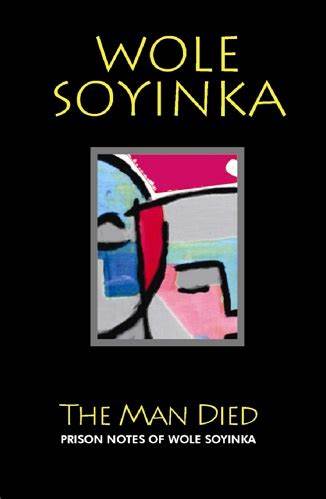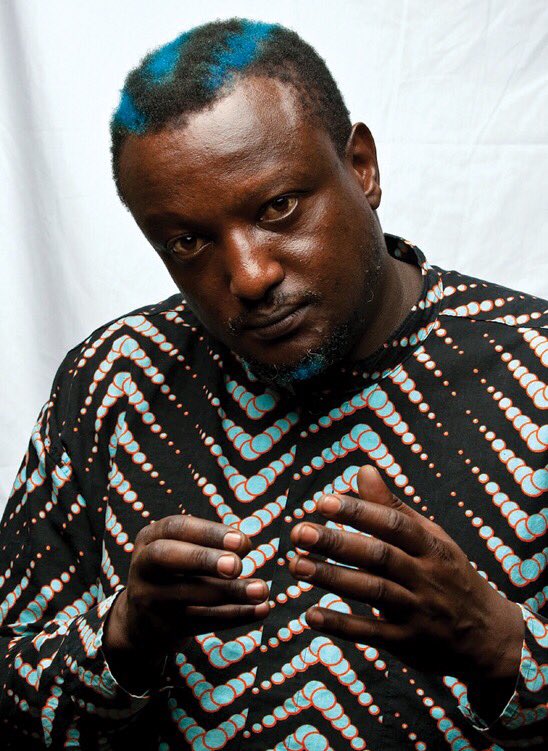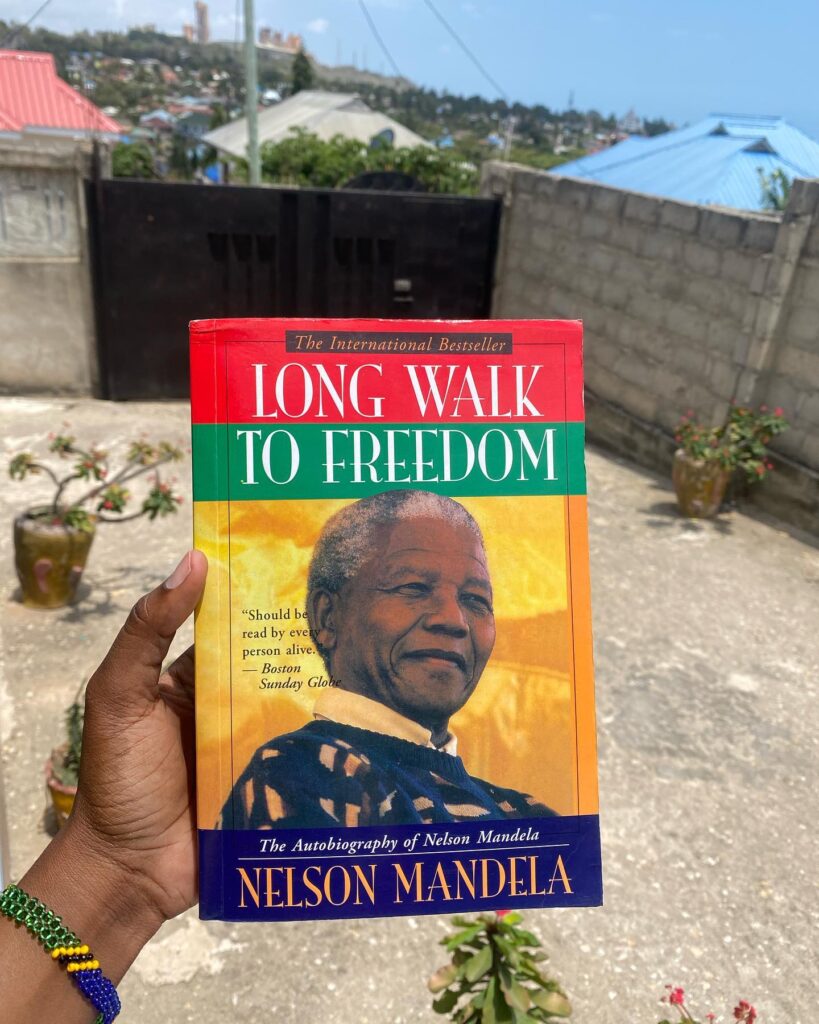Never has there been a time when creative nonfiction and the memoir have exploded with all the delightful possibilities of truth, dialogue, confession, memory, and catharsis…
By Chimezie Chika
Oversight, or Imminent Failure?
Literary awards season in Africa begins around June with the excitement around the AKO Caine Prize for African Writing. The Caine Prize is greeted with much fanfare every year, and awards £10000 British pounds to the best published short story by an African writer in the immediate past three years preceding each edition. Standing with its own prestigious baggage within the African literary landscape is the erstwhile Brunel African Poetry Prize (now rebranded as the Evaristo Poetry Prize) which, over the years, has thrown blazing light on a long line of talented African poets. The celebration of young African poets is the same rhetoric that follows the relevance of the Sillerman First Book Prize of the Africa Poetry Book Fund. There is the Etisalat Prize, the biannual Wole Soyinka Prize for Literature, the Nommo Award, which focuses on speculative fiction, and the Nigeria Prize for Literature, one of the richest literary prizes in the world.
An inventory of literary prizes in Africa shows that what all these awards — and others like them — have in common is their focus on fiction and poetry, with a sprinkling of drama and children’s literature. There is hardly any major African literary prize focusing at least part of its resources on literary nonfiction (by which I mean, creative nonfiction, memoir, and autobiography/biography). While there is no shortage of workshops and book events professing to teach and highlight literary nonfiction, there is near-total silence when it comes to rewarding the best of them. Is it just me or do I see a literary prize culture in Africa that smacks of neglect of the nonfiction genre? The question that comes to mind is the simple one: why?

(Read also: The Architecture of Literary Prizes: What Does the Future Hold for the NLNG Nigeria Prize for Literature?)
As outrageous as the question may sound, is nonfiction not considered literature in Africa? Is literary nonfiction in the beginning of a free-fall that might later be tagged — not without a characteristic sangfroid common in academic historiography — “The Great Decline of African Nonfiction”? For is it not the general belief that no one celebrates mediocrity? This is not the case however with nonfiction in Africa; it is neither mediocre nor in decline. Far from it. Never has there been a time when creative nonfiction and the memoir has exploded with all the delightful possibilities of truth, dialogue, confession, memory, and catharsis.
Beginning from a tradition that stretches back to lyrical autobiographies such as Camara Laye’s African Child, and Soyinka’s Ake: The Years of Childhood to the sheer political power of Nelson Mandela’s autobiography, Long Walk to Freedom, to the style-shifting productions that are Binyavanga Wainaina’s One Day I Will Write About This Place, and Emmanuel Iduma’s A Stranger’s Pose, to the emotional roller-coasters that greeted the publication of Ishmeal Beah’s powerful memoir, A Long Way Gone and Chimamanda Ngozi Adichie’s Notes on Grief, the continent had experienced some of its best literary moments from the nonfiction genre. A look at some of the published essays and books of the last few years proves that African literary nonfiction is in a robust place.
Why then does it seem that the bell of prizes and awards is tolling for literary nonfiction in Africa? In the larger scheme of things, this is a genre that is almost as old as the first human writings. When would be the right time to start celebrating the immense genius work being done in that genre at this time in Africa? Is this an oversight, or the failure of an art form?

Nonfiction: The Living Canon
“Representation,” “inclusion,” and “diversity” are words that are often thrown around with some recklessness wherever literature is being discussed. Sometimes the words do not translate to practise, or they presume to. With the first word, the idea is to bring every possible aspect of literary culture — the writer, the work, and the world of the subject matter being treated — into mainstream publishing. With the second, the idea is to bring in what is not formerly part of the mainstream. With the third, the idea is to fight homogeneity (well, every concept here fights homogeneity and hegemony) and create equality between all modes of literary expression. While not overtly stated, this is usually the case with literary prizes when representing the genres of literature. There are prizes that are exclusively focused on fiction, nonfiction, drama, or children’s literature. There are also very inclusive prizes that has genre categories within the prize structure.
The National Book Award in the United States has categories representing all the major genres of literature. Other awards in Europe and America, from the Baillie Gifford Prize, National Book Critics Circle Award, the Ondaatje Prize, to the Windham-Campbell Prize and many others, either exclusively celebrate nonfiction or dedicate one of its categories to nonfiction. And now, the interesting thing: African writers also jostle for these awards. The Nobel Prize for Literature, the greatest award in world literature, is supremely without genre limitations. In 2015, Belarusian writer, Svetlana Alexievich won the award for “her polyphonic writings, a monument to suffering and courage.” The Nobel Committee’s special reference on Alexievich’s work is her hybrid narrative of human voices to capture the ruptured lives of ordinary people in war and disaster. In Voices from Chernobyl, her magnum opus, she captures the devastation of the Chernobyl disaster in Ukraine using the oral testimonies of the victims.
The Nobel Prize itself recognises the strategic importance of nonfiction; it insists on its awardees delivering a speech at the Swedish Academy. The speech is, in some ways, supposed to chart the focus of the laureate’s life’s work. Many Nobel laureates often opt on such occasions, not for the medium of fiction, but for nonfiction. Those Nobel speeches, those ultimate cerebral deliveries, are a young writer’s literary education in themselves. They not only chart the artistic essence of a writer, they are also the ultimate expression of art.
One crucial quality of nonfiction is that it responds to immediacy, to urgency. The medium of expression in certain social and political exigencies may not be fiction. In such moments, many a writer reaches for the direct, unfiltered punch of nonfiction. And so there comes the Marxs, the Freuds, and the Fanons of this world, following facts and a thought process that may demand much asking of questions about the nature of reality, philosophising to make sense of the world we live in. There is a need and a place for such kinds of work. Much of the foundations of modern thought were laid down by Greek, Roman, and Arabic philosophers, historians, travel writers, and biographers. Nonfiction bears a copious amount of information and exposition; a quality that is needed in Africa at any point in time. The trenchant works of Walter Rodney, Steve Biko, and Es’kia Mphahlele operate within this spectrum. Also, there are expansive know-it-all books such as Yuval Noah Harari’s Sapiens.
In the vindictive voice of social and political iconoclasm, African writers excel. In 1983, Achebe published his seminal text, The Trouble with Nigeria, in which he examines issues that are still evident in Nigeria today, like an old wound that refuses to heal. Wole Soyinka’s The Man Died, and his monumental You Must Set Forth At Dawn is a journey through Africa’s fractured politics. These works, and more in Africa, have built a strong culture of reference around them and remain ever relevant to the delineation of the modern African identity. One of the first works that brought home to me the plight of the LGBTQI community is a compilation of oral narratives edited by Unoma Azuah, Blessed Body, a work of searing raw emotions and pain. Binyavanga Wainaina’s essay, “How to Write About Africa,” published in 2005, set a satirical tone in the social engagement of Africa with the West. It is a triumph of satire and social justice. The constant in all these varied expressions is how they place nonfiction as the medium through which immediate engagement with the political and social zeitgeist could be achieved.
There are magazines in the West that have built strong reputations on the back of literary nonfiction. The New Yorker, The Atlantic, and The Paris Review (especially with their writer interview series), comes to mind. Literary magazine culture in Africa is much more open to celebrating nonfiction. Isele Magazine, and Brittle Paper have nonfiction prizes based on works they have published in a given year. The Gerald Kraak Awards and The South African Literary Awards (SALA) are doing remarkable work for the genre. But these instances are isolated, marooned between long spaces of silence and neglect.

Perhaps the long-suffering that nonfiction has endured through time, oscillating between periods of extreme popularity and disregard, is the reason innovative patterns of expression have been developed in the genre. The New Journalism movement of the 1950s and 1960s, spearheaded by Truman Capote (In Cold Blood), Norman Mailer (The Executioner’s Song), Hunter S. Thompson (Fear and Loathing in Las Vegas), Guy Talese (Thy Neighbour’s Wife), and others, who found a creative, novelistic way to approach factual events, changed nonfiction forever. Nonfiction is not a genre of silence. Across the world and across history, nonfiction has been instrumental to the making of the modern world. We live in a world of quick events and immediate response; the fundamental approach of nonfiction is peculiarly suited to such a world. In a paper published in the English Journal, Mary Beth Culpa and Jamee Osborn Sosa conclude that the attitudes, values, and behaviour of young readers are greatly influenced by nonfiction and its relevance to the world around them.
Nonfiction is very alive today in Africa and elsewhere. In recent years we have been seeing bestselling memoirs by famous people — Michelle Obama comes to mind — that prove this fact. The canon of nonfiction contains the stories of the living and the dead; but, more than anything, it is the story of lives: the celebration of life, the examination of life, the chronicle of history, the memory of a period in time, the nostalgia for times past. It is all about life, its stages, its crucial events, its disasters and triumphs; it is the living canon.
(Read also: Are African Literary Magazines Moving in the Right Direction?)
The Relevance of Nonfiction Prizes in Africa
The African story must not only be told through the conduit of fiction. Nonfiction endows documentation value on the African story, with no less emotion than is usually accessible in fiction. One of the books that brought home to me the horror that was the Rwandan genocide is Veronique Tadjo’s The Shadow of Imana, a powerful journey through the ravaged post-genocide landscape of Rwanda. Almost ten years later, I still think about the book from time to time. The argument in some quarters that nonfiction carries less emotional punch than fiction is not tenable.
Are there genres that are better than others? Or rather, are there genres that are more artistically valuable and fulfilling than others? Such a genre, if it exists, could be said to be “more equal than others,” in the classic riff of Orwell’s seminal allegory, Animal Farm, in which the loudly professed practice of equality becomes, over time, a wide canvas of vicious inequality.

On the basis of the capitalist prodding that determines modern reading tastes, we could reasonably say that there are genres that are probably more read than others. We can look at this in binaries: fiction vs. poetry, fiction vs. drama, fiction vs. nonfiction. A number of factors such as geography, economics, and personal preferences may also play a role in genres that gain more visibility. But could we necessarily say that one genre is better than the other? I believe that each genre contains its own tableaux of stylistic props that are just as artistically satisfying as the other genre. Why then does it seem that one genre is enjoying more favours than the other? If we all agree that every genre is as good as the next, then surely we can see that we are missing a lot by not celebrating excellence in the nonfiction genre.
Prizes, according to an article on The Republic of Consciousness website, is “one of the dominant mechanisms for arbitrating cultural and aesthetic value.” Prizes, though often skewed towards fiction writers, bestow authors with some economic visibility. “Far more than book reviews, it’s literary prizes that shape the afterlives of new titles,” wrote Robert McCrum in an article in the Guardian UK. The goal is to create some balance in the marketplace, since no artistic superiority is identified between the genres. African literary nonfiction, in all its manifestations, plays different roles in the consciousness and views of Africa. The best works that articulate the factual consciousness (the psychological state, the philosophy, the past and modern history) of Africa should be celebrated with greater circulation and prestige for doing what nonfiction is best known for: examining the society and the individual.
Chimezie Chika’s short stories and essays have appeared in, amongst other places, The Question Marker, The Shallow Tales Review, The Lagos Review, Isele Magazine, Brittle Paper, Afrocritik and Aerodrome. He is the fiction editor of Ngiga Review. His interests range from culture to history, art, literature, and the environment. You can find him on Twitter @chimeziechika1




